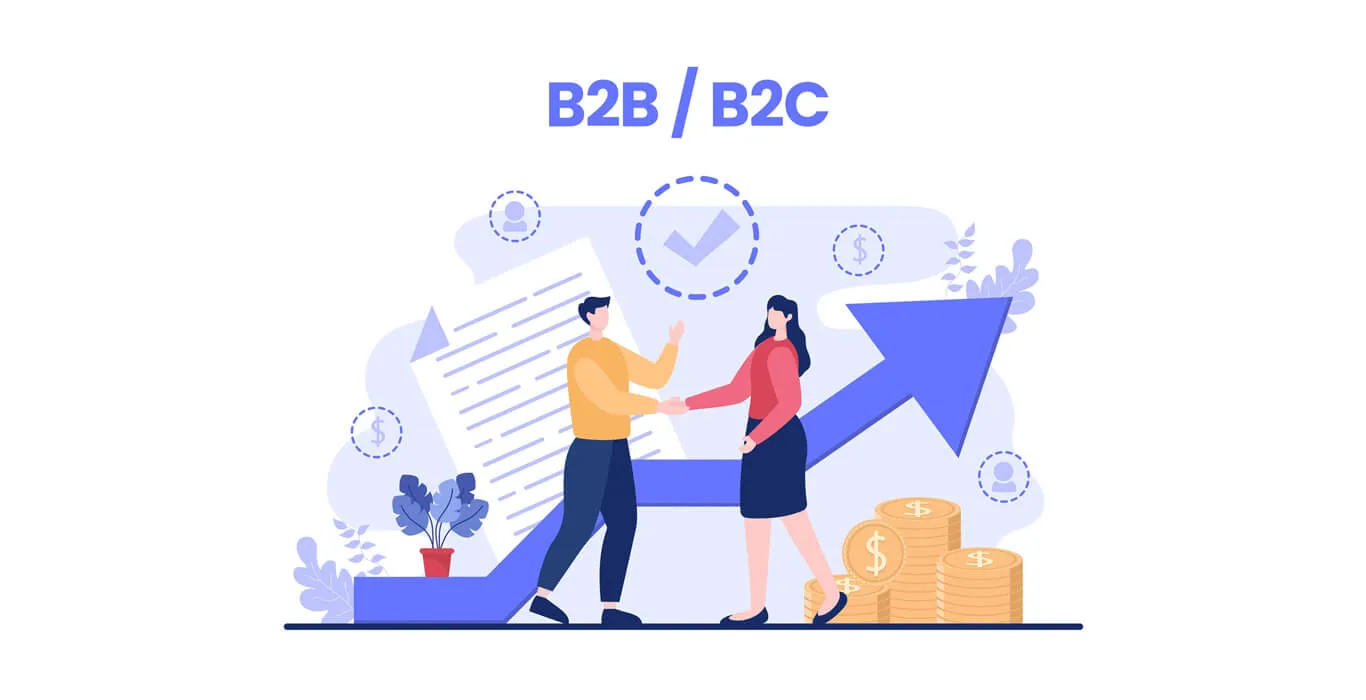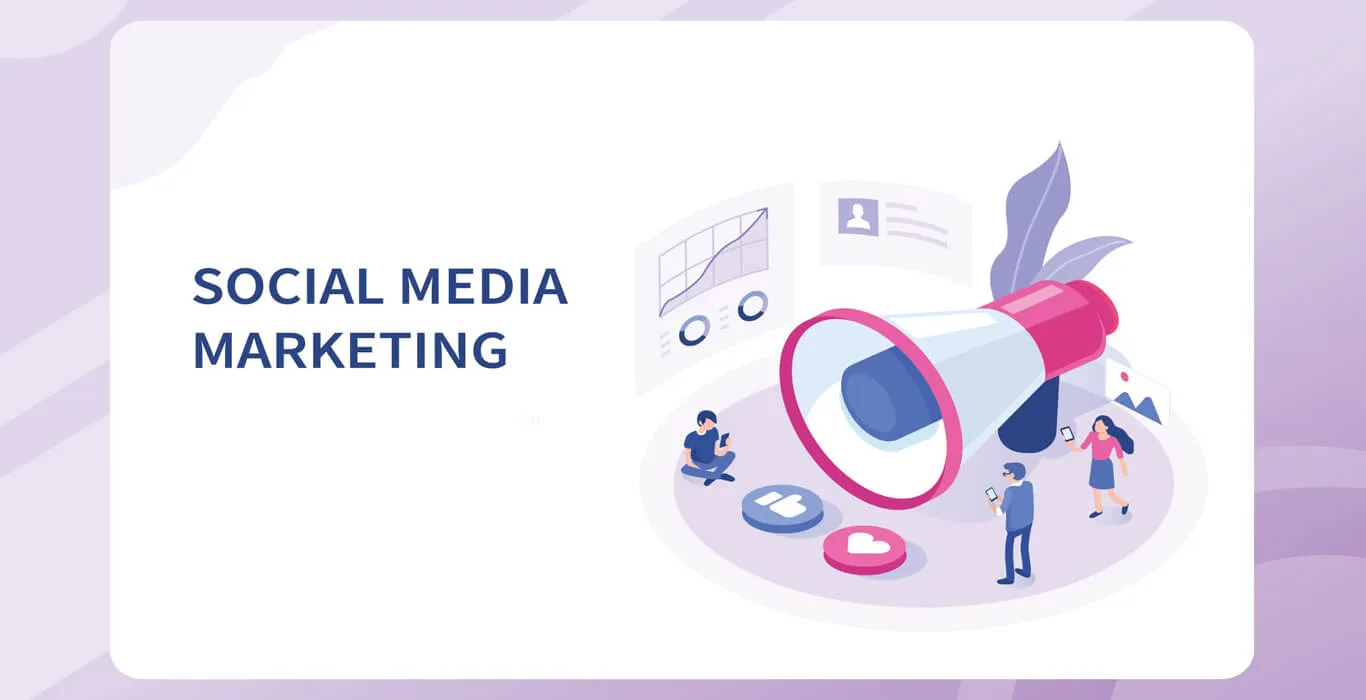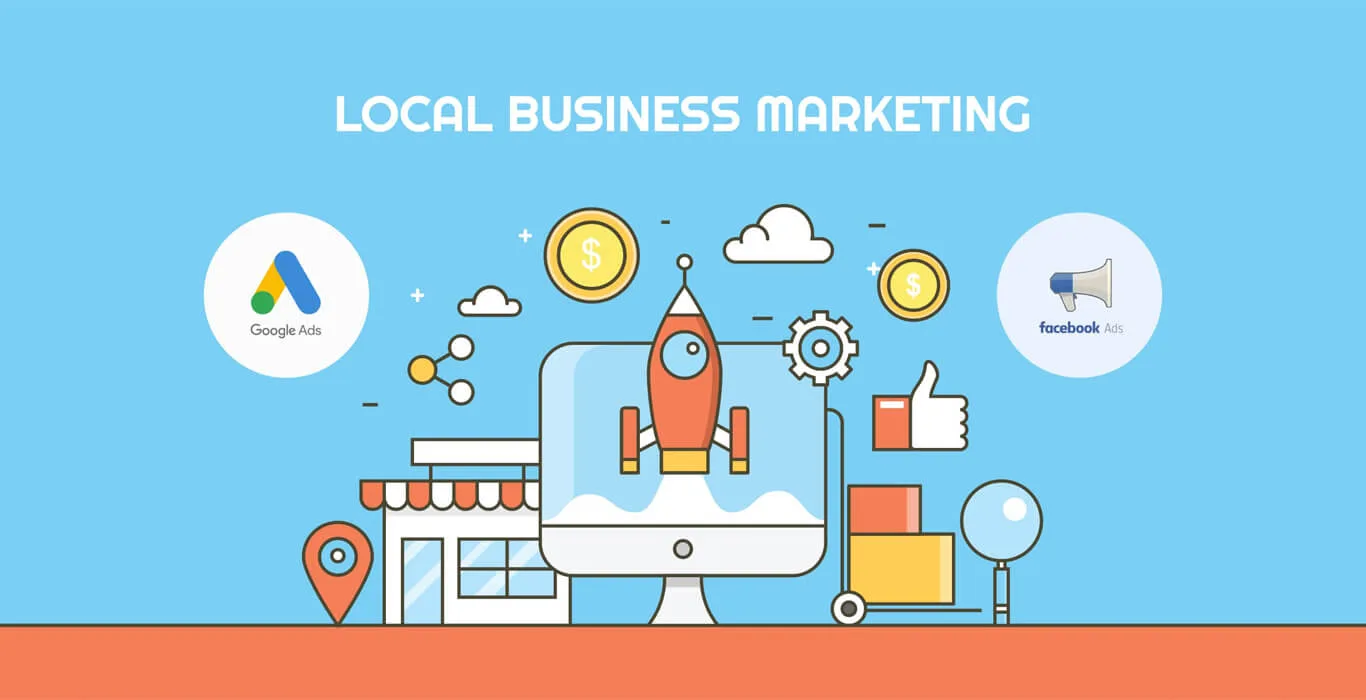Quick Summary
- Discover why social media is a must-have for businesses, helping them connect with customers and boost visibility.
- Learn how social media marketing engagement, and business growth while understanding its pros and cons for effective use.
With over 4.5 billion people worldwide using social media as of 2025, its potential is undeniable. Notably, India’s social media analytics market is projected to reach USD 4.29 billion by 2030, with a remarkable CAGR of 42% from 2024 to 2030 (Source: Grand View Research). This blog will explore the vibrant advantages of social media and how it can be a game-changer for your business success. Get ready to dive into the importance of social media marketing and unlock the potential for your brand and business to flourish.
Table of Contents
- Positive Effects that Make Social Media Marketing Powerful
- Evolution: Social Media Benefits Over the Years
- Read about the Benefits of Social Media for Businesses
- Brand Awareness and Recall Value: Top Funnel Acquiring
- Enhanced Customer Engagement
- Cost-Effective Advertising
- Lead Generation
- Keeping Up with Industry Trends & Competitors
- Knowing the Target Audience
- Increase in Website Traffic
- Brand Reputation Management
- Customer Support
- Becoming a Thought Leader in Your Industry
- Community Building
- Precaution for Using: Merits and Demerits of Social Media
- Frequently Asked Questions
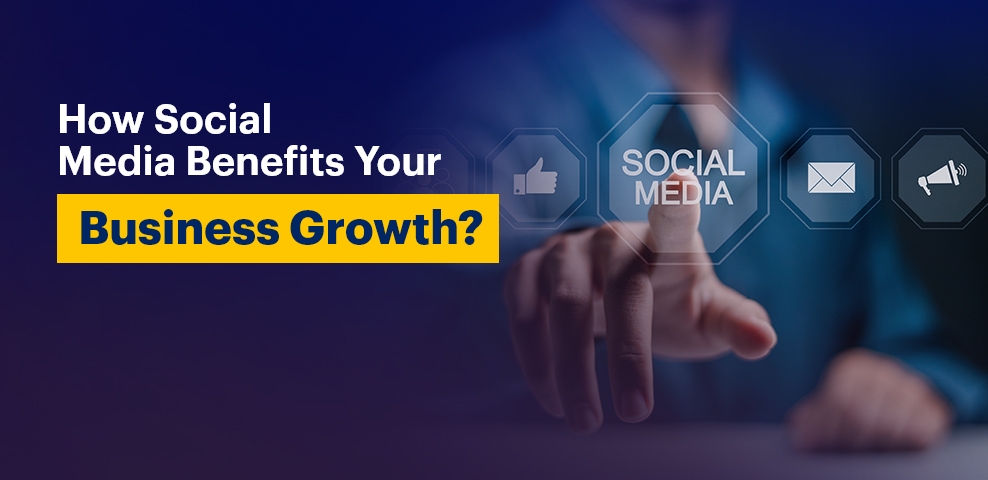
Positive Effects that Make Social Media Marketing Powerful
Social media marketing isn’t just a trend; it’s a powerful engine driving business growth in the digital age. With its ability to reach a global audience, engage in real-time, and deliver personalized experiences, social media platforms have become essential tools for modern marketing. Social media platforms act as dynamic spaces where businesses can engage audiences, share ideas, and deliver personalized experiences in real time.
Key Benefits:
- Global Reach:
Social media breaks down geographical barriers, allowing businesses to connect with potential customers from all over the world. For example, a small handicraft shop in Jaipur can showcase its unique products to art enthusiasts in Paris or New York, opening up a market that would have been impossible to tap into without social media. - Real-Time Engagement:
Immediate interactions foster strong relationships, making customers feel valued and heard. For instance, if a customer tweets about their experience with a brand, a quick reply thanking them or addressing their concerns can turn a casual interaction into a loyal relationship. - Personalized Marketing:
Advanced algorithms enable tailored experiences, ensuring that the right message reaches the right audience, similar to a carefully curated dish that caters to individual tastes. For example, if a user frequently engages with posts about eco-friendly products, they might see targeted ads for sustainable fashion brands, making them more likely to click and convert.
Need Help With Your Social Media Strategy? Get a Free Consultation Today! Schedule Your Free Social Media Audit or Call +91 88888 66110
Evolution of Social Media Over the Years
The world of social media marketing has come a long way, and it’s fascinating to see how it has evolved! From the early days of simple posts to today’s sophisticated targeted advertising and in-depth analytics, the many benefits that social media marketing provides have skyrocketed. Nowadays, businesses can harness a variety of powerful tools and strategies that help them achieve remarkable results.
Early Days:
Rise of Content:
As social media platforms grew, so did the emphasis on content. Businesses quickly realized that high-quality, engaging content was key to capturing attention. One of the biggest benefits that social media offers is the ability to showcase visually appealing content. Visual content quickly became the focus, captivating audiences with eye-catching images and engaging videos making posts much more appealing and effective than text alone.
Targeted Advertising:
The introduction of targeted advertising was a game-changer. Social media platforms started giving businesses the power to create highly focused ad campaigns. It’s like having a restaurant that knows exactly what your taste buds crave. Businesses could now reach specific demographics, interests, and behaviours through niche social media marketing platforms. This means they could spend their advertising budget more efficiently, getting their products in front of the right people at the right time.
Analytics and Insights:
With the evolution of social media came advanced analytics and insights. Among the many benefits that social media brings, having access to detailed data is invaluable. Imagine having a personal guide who helps you navigate a bustling market; businesses could track their performance and get to know their audience. This data-driven approach allowed them to refine their strategies, ensuring they were always a step ahead.
Read about the Benefits of Social Media for Businesses:
Brand Awareness and Recall Value: Top Funnel Acquiring
Platforms like Instagram and Facebook are powerful tools for building brand awareness. Regularly posting engaging content ensures your brand remains top-of-mind for your audience. This highlights social media’s importance in brand awareness
Strategies:
Consistent Branding: Just like every local store has a unique setup, make sure your brand colours and logos are consistent everywhere. This builds a recognizable identity and showcases the positive effects of social media.
Engaging Content: Mix it up! Share blog posts, vibrant images, videos, and infographics to keep your audience entertained. This is one of the many benefits of social media marketing.
Hashtags: Use relevant hashtags to boost your posts’ visibility, think of them as the bright lights that draw attention to your brand.
Enhanced Customer Engagement:
Social media encourages two-way communication, helping businesses foster loyalty and build lasting relationships. One of the key benefits that social media provides is its ability to foster loyalty through interactive content like polls and quizzes, creating a strong community around your brand and emphasizing its importance.
Strategies:
Interactive Content: Create fun polls or quizzes like asking followers to vote for their favourite snacks!
Live Videos: Host live Q&A sessions or behind-the-scenes tours to connect with your audience in real time.
User-Generated Content: Encourage followers to share their experiences with your products; it’s like getting recommendations from friends!
Cost-Effective Advertising:
Social media ads let you achieve big results with small budgets. Whether promoting organic skincare or niche products, precise targeting ensures your message reaches the right audience. To make the most of your advertising efforts, consider these:
Strategies:
Targeted Ads: Use the targeting options available on social media platforms to reach specific groups, such as selling spicy snacks to those who love the heat!
Budget Management: Start small and test different ads before going big.
A/B Testing: Keep experimenting with different ad styles to see what works best.

Lead Generation:
Platforms like Facebook, Instagram, and LinkedIn are excellent for capturing qualified leads, making them integral to achieving social media marketing goals. For instance, approximately 47% of consumers discover beauty products through Instagram Reels, leading to increased sales (Source: Business Standard). Among the many benefits that social media offers, its role in lead generation stands out, highlighting its immense value for businesses.
Strategies:
Lead Generation Ads: Use lead generation forms within ads to gather contact info from interested folks.
Content Upgrades: Offer valuable goodies like ebooks or webinars in exchange for contact details.
Landing Pages: Create special campaign landing pages to capture leads effectively.
Plan & Achieve your Social Media Goals!
Get Your FREE Social Media Content Calendar Templatedelivered straight to your email inbox now!
Keeping Up with Industry Trends & Competitors:
Social listening tools act as your brand’s radar, scanning the digital landscape to identify what’s trending and what competitors are doing. This reflects social media’s advantages, allowing you to stay informed without getting overwhelmed. Social media marketing trends can be closely monitored through social listening tools, enabling businesses to stay ahead of the curve and track industry developments and competitor activities effectively.
For instance, in the fashion sector, 78% of consumers find virtual try-ons on social media motivating for online purchases (Source: Times of India). This statistic highlights how crucial it is for businesses to stay attuned to consumer preferences and emerging trends.
Strategies:
Social Listening: Monitor conversations around your industry and brand.
Trend Analysis: Spot emerging trends and adapt your strategies accordingly.
Competitor Benchmarking: Check out what competitors are doing on social media to learn from their successes.
Knowing the Target Audience:
Analytics tools on social media platforms provide insights into audience preferences and behaviours, helping businesses tailor their marketing strategies effectively. Understanding this is crucial for leveraging the full range of benefits of social media marketing.
Strategies:
Audience Insights: Use insights provided by social media platforms to understand who your followers are.
Surveys and Polls: Conduct surveys for direct feedback like asking customers what they think about new flavours!
Segmentation: Group audiences based on preferences for personalized marketing campaigns.
Increase in Website Traffic:
Compelling calls-to-action (CTAs) in your posts can drive traffic to your business website. This is one way to emphasize the importance of social media marketing in driving sales.
Strategies:
CTAs: Include clear CTAs in posts that guide followers to your website.
Content Sharing: Share valuable content from your website on social media.
Link Optimization: Use tracking parameters to see how effective your links are.
Brand Reputation Management:
Social media is a powerful tool with a dual impact. It helps manage feedback but can amplify negative comments if not handled well. Timely responses to customer concerns can turn potential crises into opportunities, showcasing your brand’s commitment to transparency and care. Proactively monitoring brand mentions allows you to address issues before they escalate while engaging with positive feedback builds trust and loyalty.
Understanding this reflects both the positive effects and potential pitfalls (basically pros and cons) of social media. When it comes to managing your brand’s reputation in a highly connected digital world a well-handled interaction can leave a lasting impression, turning critics into advocates.
Strategies:
Proactive Engagement: Respond quickly to comments and messages.
Crisis Management: Have a plan ready for dealing with negative feedback.
Positive Content: Share customer testimonials and success stories to build a strong reputation.
Customer Support:
Social media allows for quick resolution of customer queries like how you’d promptly answer questions at a local shop! For businesses, it’s one of the key benefits that social media offers for enhancing overall customer satisfaction.
Strategies:
Dedicated Support Channels: Create dedicated support channels on platforms like Twitter and Facebook.
Chatbots: Use chatbots for instant responses to common questions.
Feedback Collection: Gather feedback through social media to improve your services.
Becoming a Thought Leader in Your Industry:
Sharing valuable insights can position your business as an authority in its field, attracting more followers like being the go-to expert in making the perfect biryani! This illustrates the ongoing importance of social media marketing in establishing credibility.
Strategies:
Educational Content: Share informative articles, videos, and infographics that provide value.
Guest Blogging: Contribute to industry blogs to showcase expertise.
Speaking Engagements: Participate in webinars or podcasts to share knowledge.
Community Building:
Building a community around your brand fosters loyalty: think of it as creating a neighbourhood where everyone knows each other! This emphasizes the importance of nurturing relationships through social platforms, highlighting the overall benefits of social media.
Strategies:
Engagement: Regularly interact with followers through comments and messages.
Exclusive Content: Offer special promotions or content just for community members.
Groups and Forums: Create spaces for personal engagement.
Precaution for Using: Merits and Demerits of Social Media
Social media offers incredible growth opportunities, but it also presents challenges that businesses need to navigate carefully. Here’s a breakdown of the merits and demerits of social media to help you make the most of it
| Merits | Demerits |
| Increased Brand Awareness | Potential for Negative Feedback |
| Enhanced Customer Engagement | Privacy Concerns (Depends) |
| Cost-Effective Advertising | Time-Consuming Management |
| Lead Generation | Requires Continuous Monitoring and Updates |
| Real-Time Insights | Information Overload |
Social media is the ultimate tool for connecting with your audience and growing your brand. From driving awareness to generating leads, it offers endless possibilities for businesses ready to thrive in the digital world.
Think of it as your brand’s megaphone. It amplifies your voice, helping you reach the people who matter most. Whether you want to spark meaningful conversations, generate quality leads, or stay ahead of your competitors, social media gives you the tools to make it happen.
At IKF, we make social media simple and effective for your business. Whether you’re looking to grow your audience, boost engagement, or create a strong online presence, we’ve got the expertise to make it happen. From crafting unique strategies to delivering real results, we’re here to help your brand stand out where it matters most. Ready to shine online? Contact us today and start your journey towards success.
FAQs
1. What Are the Key Benefits of Social Media for Business?
Social media enhances brand visibility, fosters engagement, enables real-time connections, and provides cost-effective advertising with valuable insights tailored to business strategies.
2. How Can Social Media Help Increase Website Traffic?
By sharing engaging content paired with clear call-to-action, social media effectively drives website traffic and boosts conversions through blogs and landing pages
3. What Are the Advantages and Disadvantages of Social Media Marketing?
Social media marketing enhances brand visibility, engagement, and insights but demands consistent effort and careful management to address challenges like limited reach and negative feedback.
4. How Social Media help Business Growth?
Social media drives business growth by connecting with consumers, boosting brand visibility, enabling real-time interactions, and tracking trends, highlighting the importance of social media.
5. How Do I Start Using Social Media for My Business?
To start, define your audience, pick platforms, create engaging content, and interact consistently then by refining strategies through analytics you can monitor the performance and grow gradually.

Ashish Dalia is the CEO & Chief Digital Marketing Strategist at I Knowledge Factory Pvt. Ltd.

“The Internet is becoming the town square for the global village of tomorrow.” – Bill Gates
Social media marketing (SMM) has become an effective way for businesses to reach out to their target audience and engage with them. However, social media is not just about marketing; it also has a significant impact on reputation management.
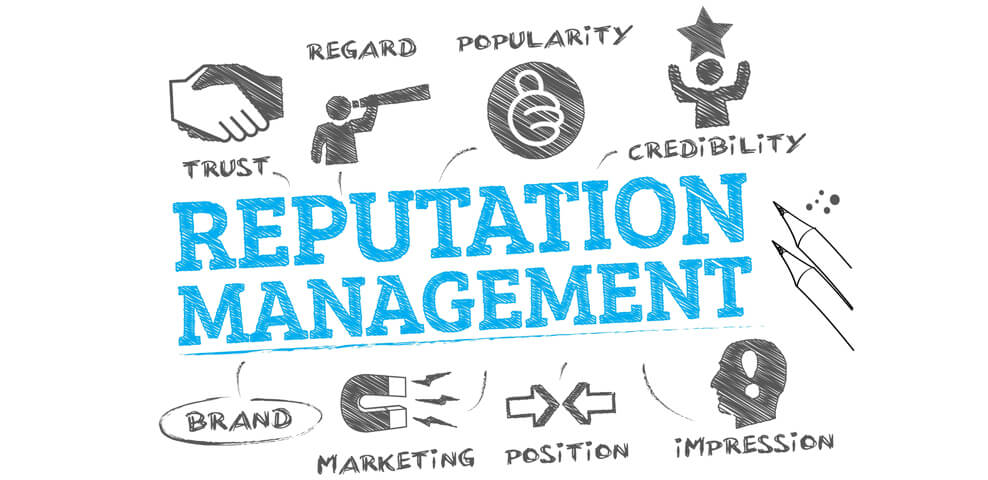
Meaning of Reputation Management
- Reputation management refers to the activities and strategies that are implemented to control and shape the way in which individuals or organisations are perceived by others.
- It involves monitoring and influencing what is being said about an individual or a business online.
- The aim is to maintain a positive image and reputation, and to address any negative feedback or comments.
How Does Social Media Affect Reputation Management?
- Social media has revolutionised the way we communicate and interact with others. It has provided a platform for people to voice their opinions and share their experiences with the world.
- This means that anything posted on social media can have a significant impact on an individual or a company’s reputation.
- Social media can have both positive and negative consequences, and it can be a two-sided coin. Negative feedback or comments can quickly spread and damage a reputation.
- Social media can also be used to build a positive image and reputation. By using social media effectively, individuals and businesses can manage their reputation and address any negative feedback or comments.
Benefits of Using Social Media for Reputation Management
1. Increased Visibility
- Social media provides a platform for businesses to interact with their customers and engage with them.
- By using social media, businesses can increase their visibility and reach a wider audience.
- This increased visibility can help businesses to build a positive reputation and address any negative feedback or comments.
2. Real-time Feedback
- Social media provides real-time feedback, which means that businesses can quickly address any negative feedback or comments.
- This can help to prevent any damage to their reputation and build a positive image.
3. Direct Communication
- Social media provides a direct line of communication between businesses and their customers.
- This means that businesses can address any concerns or issues that their customers may have.
- This direct communication can help to build trust and credibility, which can contribute to a positive reputation.

4. Brand Awareness
- Social media can help to increase brand awareness and promote a positive image.
- By posting engaging and informative content, businesses can showcase their products or services and build a loyal following.
- This can help to build a positive reputation and address any negative feedback or comments.
5. Cost-effective
- Social media is a cost-effective way for businesses to manage their reputation.
- Unlike traditional advertising, social media allows businesses to reach out to their target audience without spending a lot of money.
- This makes it an ideal tool for small businesses or startups.
Your reputation can make or break your business. That’s why it’s crucial to partner with a reliable reputation management company like IKF. We specialise in protecting and enhancing your online reputation so that you can focus on what you do best – running your business.
Our cutting-edge techniques and strategies will help you build trust with your customers and stand out from the competition. Don’t let a negative online reputation hold you back – contact IKF now and let us help you take control of your brand’s image!

Ashish Dalia is the CEO & Chief Digital Marketing Strategist at I Knowledge Factory Pvt. Ltd.

Ashish Dalia is the CEO & Chief Digital Marketing Strategist at I Knowledge Factory Pvt. Ltd.





